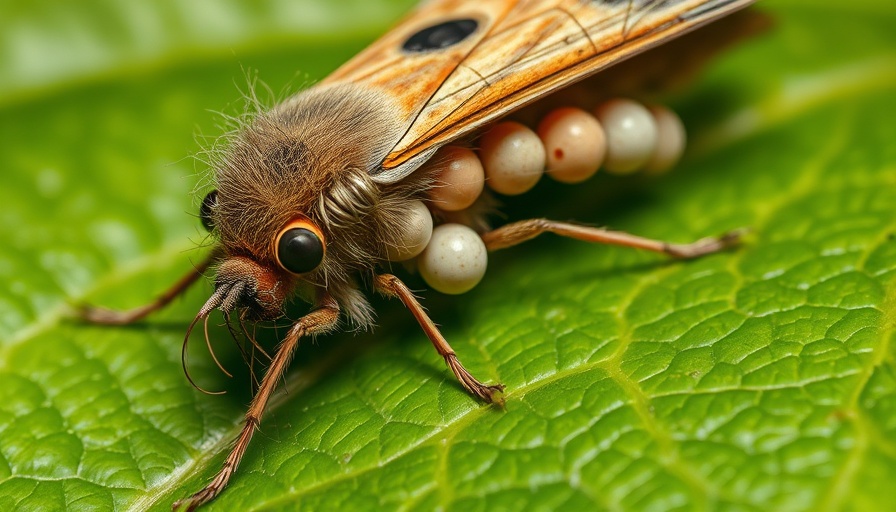
A Symphony of Survival: How Plants Speak to Moths
In a groundbreaking study from Tel Aviv University's renowned researchers, the intriguing relationship between plants and animals has emerged into the auditory realm. Researchers have uncovered the first evidence of acoustic interactions between female moths and plants, revealing that plants emit ultrasonic distress sounds that help these insects decide where to lay their eggs.
As highlighted in the study, published on July 15, 2025, this interaction shifts our traditional understanding of plant-animal communication. Beyond visual and chemical signals, it points to the sophisticated modalities through which plants interact with their environment. The ultrasonic sounds, emitted particularly under stress, are key to this communication. Female moths are shown to be capable of hearing these distress signals, and importantly, they prefer healthy plants that are not signaling distress.
Invisible Conversations: The Science Behind Plant Sounds
The researchers, led by Professor Lilach Hadany and Professor Yossi Yovel, began their exploration by emphasizing that many insects rely on a multi-sensory approach when interacting with plants. In their previous studies, they established that plants under stress emit sounds at frequencies that many insects, including moths, can detect.
“Our findings hint at a world of communication that remains largely hidden to human perception,” Yovel states, emphasizing the broader implications of this research. In essence, this new layer of sensory information could significantly impact how moths—integral to pollination and the ecosystem—select their breeding sites.
Practical Insights for Eco-Conscious Entrepreneurs
For boutique hospitality professionals and eco-conscious lodging businesses, understanding the intricate relationships between flora and fauna can offer unique benefits. Properties that prioritize biodiversity in their gardens not only attract local wildlife but can provide educational opportunities for guests.
By fostering an environment that encourages healthy plants, not only will this enhance the natural beauty of your property, but it also supports the critical animal life that significant percentages of your guests care deeply about. Incorporating nature reserves or chaos gardening principles into your landscaping can enhance the acoustic health of your gardens, contributing to a rich biodiversity.
Connecting the Dots: The Importance of Biodiversity
As climate change continues to threaten traditional ecosystems, the vitality of healthy landscapes becomes even more crucial. Our cognitive awareness of how plants and animals interact might evolve into actionable insights—like maintaining organic gardens free from microplastics and other pollutants—which ensure a healthier ecological balance.
By engaging with research like this, boutique hospitality professionals can adopt sustainable practices that not only mitigate their environmental impact but also promote awareness about vital ecological relationships. For example, certain insects like bees, which benefit from diversified plant life, are essential for pollination—an important factor for any aspiring eco-lodge or hotel aiming for sustainability.
Future Implications: A New Era of Environmental Cooperation
Looking ahead, the findings raise several important questions about the potential for more undiscovered interactions between various animal and plant species. Understanding these relationships could lead to new conservation methods and reinforce why nature reserves are crucial in preserving biodiversity amidst changing climates.
As we foster conversations around climate awareness and sustainability, remembering the connections—no matter how inaudible—can lead to better outcomes for all species involved. Knowing how sounds may play a role in these intricate webs highlights the delicate interplay necessary for ecological health.
Conclusion: Your Role in the Ecosystem
As professionals in the hospitality industry, embracing these ecological dynamics can lead to innovative guest experiences that educate and engage. By implementing eco-friendly practices, you contribute to a healthier planet and a thriving community around your establishment.
If you're interested in learning more on how to create sustainable spaces where nature thrives and guests are educated about ecological interactions, now is the time to take action. Whether it’s incorporating local flora into your landscaping or committing to a zero-waste approach, every small effort counts towards a healthier environment.
 Add Row
Add Row  Add
Add 




Write A Comment